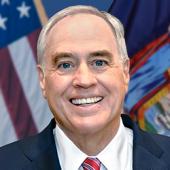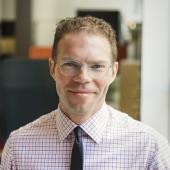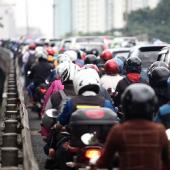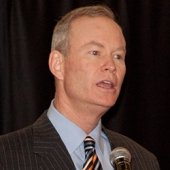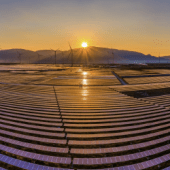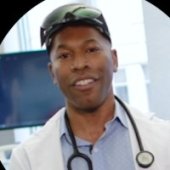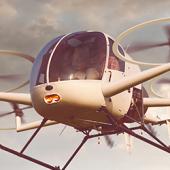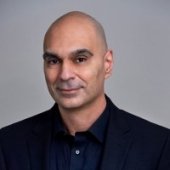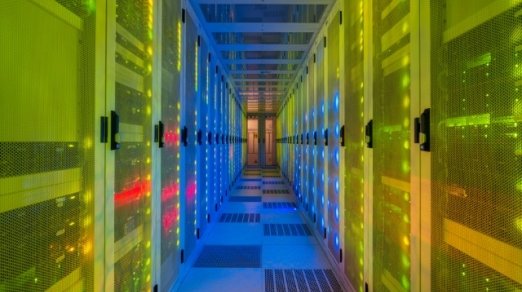Michio Kaku on cities, AI, brain net, fusion power, digital immortality and more
IN BRIEF
- 6:05 – There’s no magic bullet: “but a combination of driverless cars, smart roads that can size up the situation immediately and delivery systems that are automatic and artificially intelligent. The combination of all these factors will make cities much more livable in the future.
- 14:55 – Artificial intelligence will be everywhere in the future: “In 2050, we’ll have fusion power, that is energy that comes from the hydrogen in seawater that will energize our machines; giving us almost unlimited power for free.”
- 20:15 – We could have a library of souls: “People who have passed away but have left a digital legacy to marvel at. Digital immortality is something that’s achievable within a few decades. Silicon Valley is already offering to do this and one day it’ll be so perfect that it will be almost indistinguishable from the real person.’
In this exclusive segment, we present a very special guest, Dr. Michio Kaku. A theoretical physicist, renowned futurist, best-selling author and acclaimed public speaker, he’s been featured in and starred in several science programs for TV on the Discovery Channel, the Science Channel, and the History Channel. He’s a contributor to CBS This Morning and is a regular guest on news programs around the world, including CNBC, MSNBC, CNN, Fox News and the BBC. Watch Dr. Michio Kaku in conversation with Cory Gunderson, Executive Vice President of Global Solution at Protiviti, and Joe Kornik, Director of Brand Publishing and Editor-in-Chief of VISION by Protiviti, on the future of cities, the planet, AI, the mind, and outer space, and pretty much everything in between.
Joe Kornik: Welcome to the VISION by Protiviti interview. I’m Joe Kornik, Director of Brand Publishing and Editor-in-Chief of VISION by Protiviti, our content initiative where we look far into the future to examine the strategic implications of big topics that will impact the C-suite and executive boardrooms worldwide. In this, our first topic, the future of cities, we’re exploring the evolution urban areas are undergoing and how those changes will alter cities over the next decade and beyond.
Today, I’m joined by Protiviti’s Cory Gunderson as we interview our very special guest, Dr. Michio Kaku. A theoretical physicist, renowned futurist, best-selling author, and acclaimed public speaker, he’s been featured in and starred in several science programs for TV on the Discovery Channel, the Science Channel, and the History Channel. He’s a contributor to CBS This Morning and is a regular guest on news programs around the world, including CNBC, MSNBC, CNN, Fox News, and the BBC, and now we’re thrilled to be able to have him as a contributor to VISION by Protiviti to discuss the future of cities, the planet, AI, the mind, and outer space, and pretty much everything in between. We’re so excited to have Dr. Michio Kaku with us today. Doctor, welcome to the VISION by Protiviti interview.
Dr. Michio Kaku: Glad to be on the show.
Joe Kornik: I’d like to start on the topic of cities, if we could. As we begin to slowly emerge from the pandemic, there’s been a lot of discussion around cities and their future. What’s your current view on cities? Are you optimistic about their short- and long-term future?
Dr. Michio Kaku: I am cautiously optimistic. Even before the pandemic, we had the process of digitization. People going online, conducting things on Zoom or Skype, and the pandemic accelerated that. Accelerated the process of digitization, which is a normal process. However, I think the pendulum went too far. The pendulum is beginning to swing back. So I think jobs in the future will be hybrid. To a certain degree, some jobs will be offline, some jobs will be online. In other words, you can live in the suburbs if your job does not require you to be in the home office. That’s a normal process of digitization but at the home office, that’s where the boss, that’s where the leadership, that’s where the people in charge have to know exactly what’s happening, who’s doing what, and they have to be in charge. So I think that there’s something called Dunbar’s number. Dunbar’s number is the maximum number of people that the human brain can reasonably accommodate. For example, apes or monkeys, Dunbar’s number is about 10 or 15 that are in a tribe. However, with humans, our number is about 100 and that’s the size of the home office. Because that’s the number of people that we can reasonably size up. We have to size up character. We have to know who’s goofing off. We have to know who has leadership potential and that’s why Wall Street now, Wall Street is beginning to say that, “Hey, start to come back to the home office.” Because, yes, some jobs can go to the suburbs. Some jobs can be done online. However, jobs involving leadership, involving sizing up character in terms of who to promote, those things are very intimately tied with body language, mentoring. Things that cannot be measured by Zoom or by Skype. That’s why I’m saying that the home office is going to be the home office. That’s going to be where leadership sizes up the situation, understands who does well under pressure and that’s going to be Dunbar’s number. For example, at Christmastime, how many Christmas cards do you send out? Roughly 100 or so and that’s the number of people that your brain can reasonably accommodate, judge character, and that’s why it’s so important that we have the home office once again.
Joe Kornik: There’s plenty of other sort of things I know that go into making the city function and when we talk about the future of city, things like AI or transportation, climate, how do you see these things impacting the cities as they go forward?
Dr. Michio Kaku: Well, everybody knows that electricity is everywhere. Electricity is in the walls, in the ceilings, in your body even. In the future, artificial intelligence will be everywhere. Sensors placed throughout the environment to make things live. For example, smart roads. Roads will have sensors embedded in them so we’ll know exactly where the traffic jams are, the choke points. We’ll know exactly where the traffic patterns are and cars, of course, will be driverless for the most part. Meaning that when you want to find a parking slot, you simply talk to your car and say to your car, “Find a parking spot.” It scans the city with artificial intelligence, finds out where to park the car, and again, it parks itself. Later, you simply talk to your wristwatch and call for your car once again.
Dr. Michio Kaku: Well, I think what’s happening in Miami is a wakeup call. We have the tragedy of a building right next to the ocean where engineers did not properly analyze the corrosion of the system to saltwater, to rain, to rust and as a consequence, buildings have collapsed. That’s a wakeup call. Because about 50% or so of the world population lives not too far from the ocean. Populations of any nation are usually concentrated toward the ocean. That’s where the jobs are, that’s where transportation is most easily accessible, and that’s where people migrate toward but a consequence of that is that as sea levels begin to rise, certain cities may go underwater. Look at what’s happening to Venice. Venice, in some sense, is a wakeup call for the people of Europe and what’s happening in Miami is a wakeup call to the people of the United States. That, yes, we would like to have beachfront property. Yes, we want to be right there next to mother nature but there’s a price. There’s a price you pay for it and already certain cities like London have locks on the rivers to make sure that the flow of water does not overwhelm the resources of that city.
So that’s one of the prices we’re going to have to pay for urbanization and that is we’re going to have to deal with climate change, the rising of sea level rises, and of course, hurricanes.
Joe Kornik: Right. I think you’re hitting on a lot of key and critically important points and my initial reaction I guess just to your answer is, do you think we’re up for the challenge? Where do you see the investment coming from, the energy and the perseverance to get these sorts of things done? Is that a private sector initiative, a public sector initiative, or some sort of combination of both?
Dr. Michio Kaku: It’s going to be a combination of public and private initiatives. Because, of course, there are strengths and weaknesses. The strength of government projects is you can amass enormous amounts of resources over long periods of time. Things that we can simply write the check for using our taxes. That’s the advantage of working with the government. That’s why we have huge projects like the Manhattan Project or the space program but it’s lumbering, it’s slow, it’s wasteful, it’s bureaucratic. That’s where the private sector can come in. The private sector is nimble, it’s fast. People can go in and out, less waste. Waste is cut out, for example. Less bureaucracy, less red tape involved. So there’s going to be a combination of the two and just remember that the public sector is going to be dragged, screaming and yelling, so that it begins to address some of these questions, especially of infrastructure. These are questions that taxpayers usually don’t want to pay for but, if you want to have cities, if you want to have jobs, if you want to have a vibrant economy, these are things that have to be addressed by the public sector, which can initiate big projects, and the private sector, which can make money by initiating, by cutting down on the waste, by increasing the efficiency of these systems and increasing the efficiency of infrastructure.
Joe Kornik: I think one of the challenges going on right now in cities, around smart cities, is again the public and private when we talk about cyber and technology. You said you’re in New York city. There’s data everywhere. There are sensors, there are cameras and all that data undoubtedly will bring many positives. There are potentially some privacy issues that come along with it. So I’m curious your thoughts on people’s level of tolerance for that level of intrusion. I think it could vary culturally probably but how do you see that playing out, the smart city versus surveillance push and pull as we go forward?
Dr. Michio Kaku: Well, as you said, some of it is social. In Asian countries, for example, places like Singapore, South Korea, there’s a lot more tolerance. Tolerance of invasive governments poking around, trying to figure out where diseases are spreading. In South Korea, for example, when there’s an outbreak of the virus, doctors and government officials can come immediately in and quarantine the area and stop the flow of the economy on a drop of a hat. You can’t do that in the United States. In the United States, there’s much more freedom of expression, much more suspicion about the government and you have to find a balance, which is part political but part cultural as well. Now, if you have too much Big Brother, too much surveillance, then yes, you can shut down whole cities, whole provinces like what China did. China was able to get an early grasp on the virus by simply shutting down whole sectors of their economy. You can do that but not everyone tolerates Big Brother. China, because it’s more totalitarian, was able to do that. South Korea and Singapore, to a lesser degree, were able to do that, but in western societies, they’re not going to tolerate that.
Too much government intervention means Big Brother, however, if you have too little input in terms of regulation, then things go wild. Think of what happened in 1929. In 1929, the whole stock market crashed because of course things ran amok. There were few safeguards on the economy. People could pretty much do what they wanted to do and there was chaos. So there has to be a balance. Now there’s no magic bullet here. There’s no magic formula that says that this is where the line has to be drawn. Every society has to draw it for themselves. Because every society has a tolerance for an invasive government, but also a tolerance for the chaos of the free market. So I think it’s going to be a public and private decision as to where to draw the line, and the line has to be drawn someplace.
Joe Kornik: I’ve watched your 2057 series on the Discovery Channel and I certainly recommend our audience do the same if they haven’t seen it. It’s wonderful. In that series, you focus on what life will be like in the year 2057, and in one episode, you focused specifically on the city. I’m not necessarily going to ask you to look quite that far out, maybe just to 2030 or 2040 or, who knows, 2050 is a nice round number if you want to go that far out. I’d love to hear your thoughts on it. What would be possible that far into the future? Most importantly, will cities continue to be the cultural, creative, and economic centers that they are today when we look that far out into the future?
Joe Kornik: Excellent. Some mind-bending things there to think that far into the future. Thank you so much, Dr. Kaku, for those views on cities. At this point, I’d like to open things up a bit and talk about some other topics and to do that, I’m going to invite in Cory Gunderson, Protiviti’s Executive Vice President of Global Solutions. Cory.
Cory Gunderson: Thanks, Joe. Nice to be speaking with you here, Dr. Kaku. Thanks for joining us again. Always fascinating thoughts and I guess as you were talking on that last bit there with Joe, it raised the question in my mind in terms of the future of humanity. If we think about the future of humanity and artificial intelligence and sensors taking root in the items that you’ve written and spoken about in the past, where do you see the future of humanity and how we might work differently? What do you think some of the game-changers will be?
Dr. Michio Kaku: Well, first of all, I think Hollywood has jumped the gun, scared the pants off us by giving us movies like the Terminator, which seemed to indicate that robots are going to take over immediately. Wrong. We have to realize that robotics and artificial intelligence is just beginning to flourish. For example, our most advanced military robot. If you put them in the forest, our most advanced military robot has the intelligence of a cockroach, a bug. Even a bug can hide in a forest, find mates, find food, find shelter. Our most advanced military robot in the forest simply falls over and can’t even stand up again. However, I do believe that one day, they will be as smart as a mouse, then as smart as a rat, then as smart as a rabbit, then as smart as a dog or a cat, and finally, perhaps by the end of the century, perhaps as smart as a monkey. Now at that point, they are potentially dangerous but again, not dangerous for many, many decades into the future. Because, you see, monkeys are self-aware. They know they are monkeys. Now dogs, dogs are confused. Dogs think that we are a dog. That’s why they obey us. We’re the top dog, they’re the underdog. They’re confused. Monkeys are not [Laughter] confused. Monkeys know they are not human and so when robots become that intelligent, again, maybe 100 years into the future, I think we should put a chip in their brain to shut them off if they have murderous thoughts. So I am not afraid of the Terminator.
Cory Gunderson: That’s good to hear. Movies have to sell tickets so they have to take controversial positions sometimes in order to do that. So it sounds like you’re on the path where you feel artificial intelligence and other items are actually going to be enhancing to humans versus making humans more obsolete.
Dr. Michio Kaku: That’s right. In fact, I think immortality, digital immortality, is something that is actually achievable within a few decades. Silicon Valley is already offering to digitize everything known about you. Your credit card transactions, Instagram photographs to give an image, an artificial intelligent image of who you [Laughter] are. One day, it’ll be so perfect that it’ll be almost indistinguishable from the real person. I would, for example, love to talk to Einstein. One day, pretty soon, somebody will digitize everything known about the person. His thoughts, his theories, his video tapes and put a holographic image and make it available commercially. I think historians would love to talk to Winston Churchill and I think one day, we will become immortal. We will live forever and be able to talk to our great, great, great, great grandkids and our great, great, great, great grandkids will be able to talk to us. So I think one possibility is digital immortality where we have a library of souls. A whole library of people that have passed away but have left a digital legacy for us to marvel at.
Cory Gunderson: That’s an interesting future, for sure, and lots of possibilities open up there. It feels like a common thread in some of these themes, Doctor, is the importance of intellectual work and how that’s going to be a big part of the future. If we tie value to that, and we think about this from a business context, it seems like the most valuable companies of the future are those that will be able to harness innovation and creativity on a regular basis. What would you say to leaders of those companies and maybe to those companies themselves that they should be thinking and maybe doing today to help them on that journey?
Dr. Michio Kaku: Well, when I was a child learning world history, we learned a concept called “The sick man of Asia”. The sick man of Asia where the Chinese and the Indian masses, millions and millions upon them, they were at near-starvation levels. Well today, we don’t talk about that anymore. We talk about China and India being potential superpowers. What happened? What happened was that these peasants gradually became educated and being educated, they could create value. They could create hardware, machines, factories, goods, and services because they were educated and that’s the power of the mind. If you can educate people, instead of becoming a drain on society, they become an asset to society and as I mentioned before, there are three kinds of jobs that cannot be automated very easily. The third kind of job is the innovator. The creator of imaginative things that speculate, that can dream, that create new things because they’re imaginative and I think that companies have to foster this mentality. Foster the mentality of being educated so that you know what you’re talking about but, two, dreaming. Dreaming about what the future could look like. Because these are the people, the innovators, that are going to change history. In fact, that’s one problem that China has. China has lots of people that are very educated now, a huge middle class, but they’re not that imaginative. They learn by rote and that’s going to impede their ability to flourish in the cyber future where imagination, innovation, creativity, leadership become a primary concern and I think companies, companies which foster that atmosphere of innovation are going to be the companies that survive and flourish in the future.
Cory Gunderson: Well, that should be good news for Protiviti innovation. That’s one of our three values and we’re very excited by what that can do and our belief is to drive innovation into everything we do all the time through all our people. So it’s a big order but one we’re working hard towards. It seems that there might be some implicit items in what you just spoke about, Doctor, in terms of innovation and dreaming and creativity. Do you think that’s something that the business can address in their own curriculum and training for individuals or do you think that’s something that we also need to perhaps evolve our traditional education systems around the world to start to bring more of that into play?
Dr. Michio Kaku: Well, when you talk about education, I personally believe that our educational system does a pretty good job, pretty good job of training young people to live and flourish in the year 1950. Now the only problem is we don’t live in 1950 anymore but our educational system is well suited to live in that world, which no longer exists, and so that’s why I think that we should teach the curriculum for school children in a way that brings them up to the future. The future belongs to the educated, the creator, the imaginative. These are the people that are going to change history rather than simply repeat history of the past. [Laughter] That’s a tall order because you’re talking about changing the curriculum of a massive public educational system that is pretty much mired in the past but that’s what you have to do. The future does not wait for anybody. The future only waits for those people who are imaginative, creative, and innovative enough to grab it and run with it.
Cory Gunderson: Yes, you have to be bold and help create the future versus just letting it happen. Doctor, if we look back over the last couple of decades and we think about the companies and businesses that dominated the top of the stock charts and value positions, the revenues and the growth, the General Motors, the General Electrics, and others. They’ve now given way to, in many cases, technology-based companies or data-driven companies in one way, shape, or form. The Amazons, the Apples, even, some might argue, a lot of the banking organizations that are processing data. If we look forward, as part of our VISION program, over the next couple of decades, where do you think — what industries will be the list of the top revenue companies, the top value companies in, let’s say, 2040.
Dr. Michio Kaku: When you take a look at the industries of the past, they were mainly based on oil and coal and fossil fuels. However, the fuel for the future is going to be data. Data will be the fuel for the future and the companies that dominate the future will be those companies that I call leaders of perfect capitalism. Now let me explain. Capitalism is a system whereby prices are set by supply and demand and there’s private ownership. That’s it. That’s called capitalism but capitalism is imperfect. You don’t know who’s cheating you. You don’t know what prices really are. You don’t know who’s deceiving you in the marketplace. Prices fluctuate and that’s where computers come into the picture. Computers could give us a more accurate assessment of what prices really are in real time. So we can see the bottlenecks, we can see the choke points, we can see the friction of capitalism. For example, why is Amazon one of the biggest companies on the planet Earth? Because they digitized the middlemen. They digitized a source of friction in capitalism and so that’s one way in which value is generated, by decreasing the friction, by decreasing the choke points, the bottlenecks, the dead ends, the speed bumps in supply and demand, and those companies are the future. Those companies are the future, which will dominate things or the companies that can streamline the middleman. Streamline the waste, the inefficiencies, the redundancy of the marketplace and they’re the ones who are going to survive into the future.
Cory Gunderson: Fascinating. Thank you. I guess as a last question, having the privilege of speaking with a theoretical physicist, a futurist and with very recent news even over the weekend on the continued exploration of space, I guess I’d like to ask and maybe end with your views on the future of outer space and how that interacts with some of the topics we’ve spoken about today.
Dr. Michio Kaku: Well, I think there’s a whole frontier waiting for us to explore and that is outer space. First of all, people ask me a simple question: “Why bother?” and that is, well, the dinosaurs did not have a space program and that’s why they’re not here today. There are no dinosaurs in this room because, of course, they had no space program and they had no way to escape that asteroid that plowed into Mexico 66 million years ago, wiping out 90% of all life forms on the planet Earth. They were helpless. Well, we’re not, and prices are dropping like a rock. It costs $10,000.00 to put a pound of anything in orbit around the Earth. That’s your weight in gold. Think of your body made out of solid gold. That’s what it costs to put you in the earth orbit around the Earth. To put you on the moon costs about $100,000.00 a pound. To put you on Mars costs about $1 million a pound and the costs are dropping. That’s the key.
Take a look at the history of the airlines and the railroads. Initially, they were for transporting freight, goods, troops, hardware. That’s stage one. Stage two was when wealthy individuals wanted to create luxury liners and comfortable ways to transporting themselves across the country. Now we’re in stage three. Prices have dropped to the point where mom and dad can now get out an airplane and get on a train. Now we’re entering stage two of the space program. Yes, billionaires are paving the way for the exploration of space but that’s temporary. Eventually, we’ll go into stage three and also there could be treasures to be found in outer space.
Look at California. California in the 1800s was a wilderness. In fact, Thomas Jefferson once said that it would take a thousand years for us to colonize the mid-west and the far west. Well, we did it in less than a century. How come? Gold. Gold was discovered in California and that set off the gold rush. Well, there’s more gold out there in the form of asteroids. Asteroids are high in platinum and rare earth elements that are not found so much on the crust of the planet Earth but are found in asteroids. NASA, in fact, even had a plan, it’s since been delayed, but NASA had a plan to capture an asteroid and bring it back to Earth. One large asteroid would be worth billions of dollars if it were to be brought back to the planet Earth.
So perhaps there’s another gold rush in outer space. Not soon, but eventually, perhaps outer space could also be developed.
Cory Gunderson: That probably brings us full circle where we might even see the future of cities being in outer space as those prices once declined. Dr. Kaku, thank you so much for joining us on our vision discussion and all of your insights and sharing about the future. It’s certainly fascinating.
Dr. Michio Kaku: My pleasure.
Joe Kornik: Thanks, Cory, and thanks, Dr. Kaku, for an enlightening look at the future of, well, what didn’t we cover today? Pretty much everything. I’m Joe Kornik. Thanks for watching the VISION by Protiviti interview. We’ll see you next time.
Dr. Michio Kaku is a theoretical physicist, renowned futurist, best-selling author and acclaimed public speaker. He’s been featured in and starred in several science programs for TV on the Discovery Channel, the Science Channel and the History Channel. He’s a contributor to CBS This Morning and is a regular guest on news programs around the world, including CNBC, MSNBC, CNN, Fox News and the BBC.
Cory Gunderson is Executive Vice President of Global Solution at Protiviti. He specializes in enterprise risk management, credit risk management, operational risk management, due diligence services, model development and validation, internal audit, Basel II and risk reporting.
Did you enjoy this content? For more like this, subscribe to the VISION by Protiviti newsletter.



